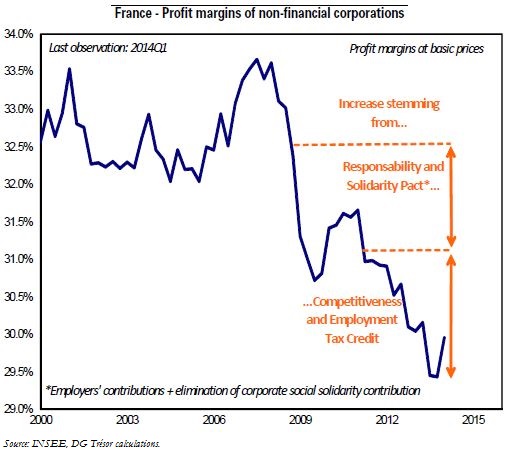Trésor-Economics No. 134 - How do French unit labour costs compare to those of its euro area partners?
Before the "Great Recession" in 2008, unit labour costs (ULCs) showed contrasting trends in the euro area. While they recorded particularly strong growth in Spain and, to a lesser extent, Italy, they fell in Germany. France's unit labour cost growth was slightly higher than the euro area average as a result of marginally stronger wage growth.
The recession narrowed the differentials in ULC growth somewhat, particularly in the manufacturing sector. More specifically, Germany's ULCs rose as a period of wage restraint ended and Spanish ULCs dropped sharply in line with the productivity gains resulting from massive job destruction and, in part, from the changing structure of the country's economy. France's ULCs continued to rise, even though their growth was contained in the manufacturing sector, where significant productivity gains were achieved.
The widely divergent trends between European countries since the early 2000s did not lead to any drastic changes in the hourly wage rankings. Spanish wages have remained significantly lower than German or French wages throughout the period. However, comparing levels of ULCs is a difficult exercise. Nevertheless, there are other major components of competitiveness that should be taken into account, such as exchange rates or non-price competitiveness.
In countries like France, firms made major efforts to squeeze their margins and maintain their price competitiveness when the euro strengthened between 2001 and 2007 and as ULCs rose. They kept prices down by compressing their profit margins.
Their margins collapsed between 2007 and 2012. To address this issue, France is implementing the Responsibility and Solidarity Pact, which supplements earlier measures, such as the Competitiveness and Employment Tax Credit (CICE), that aims to enhance economic competitiveness. Firms' labour costs will be reduced by a total of EUR30 billion, enough to restore their profit margins to pre-crisis levels.
